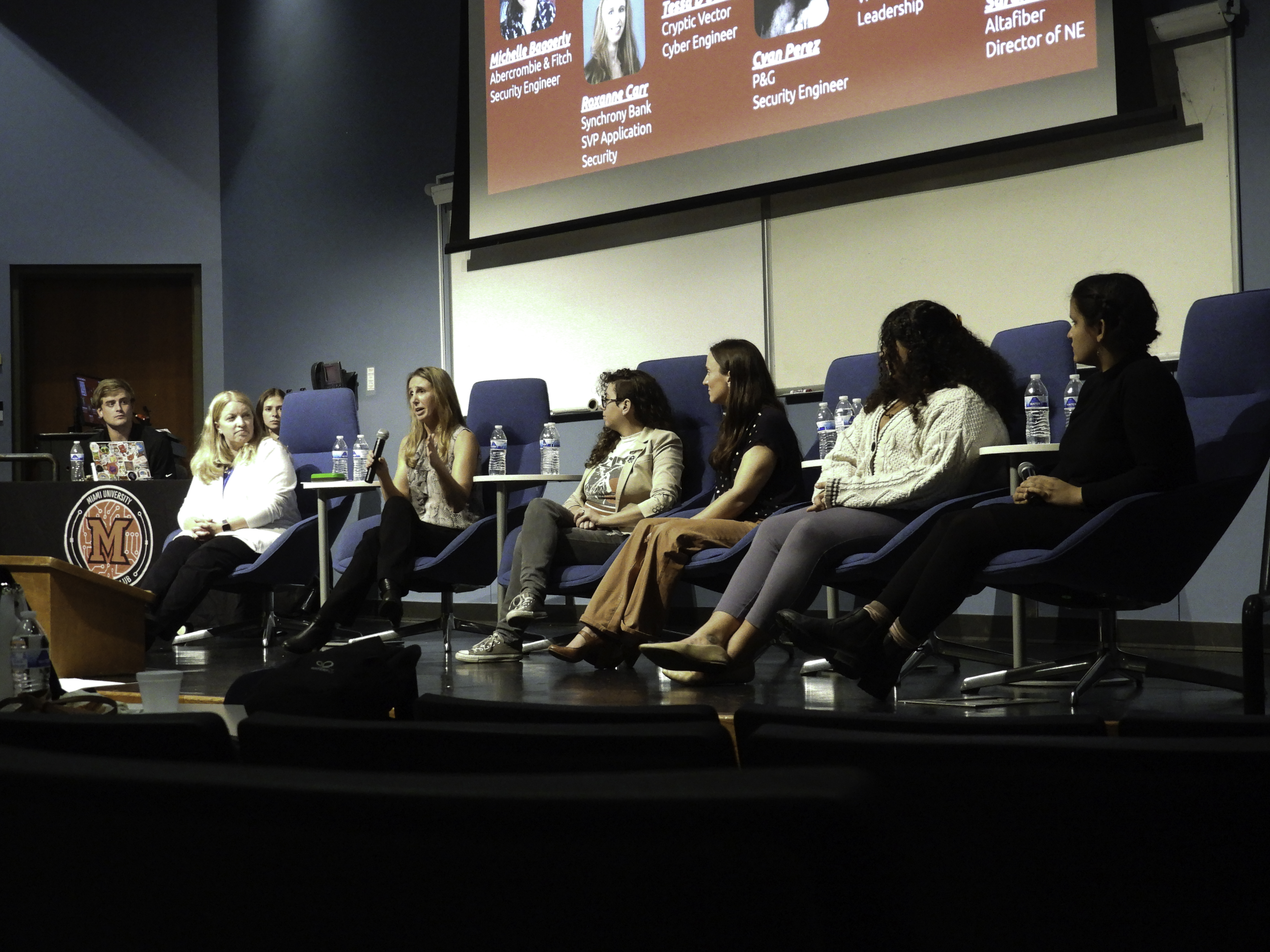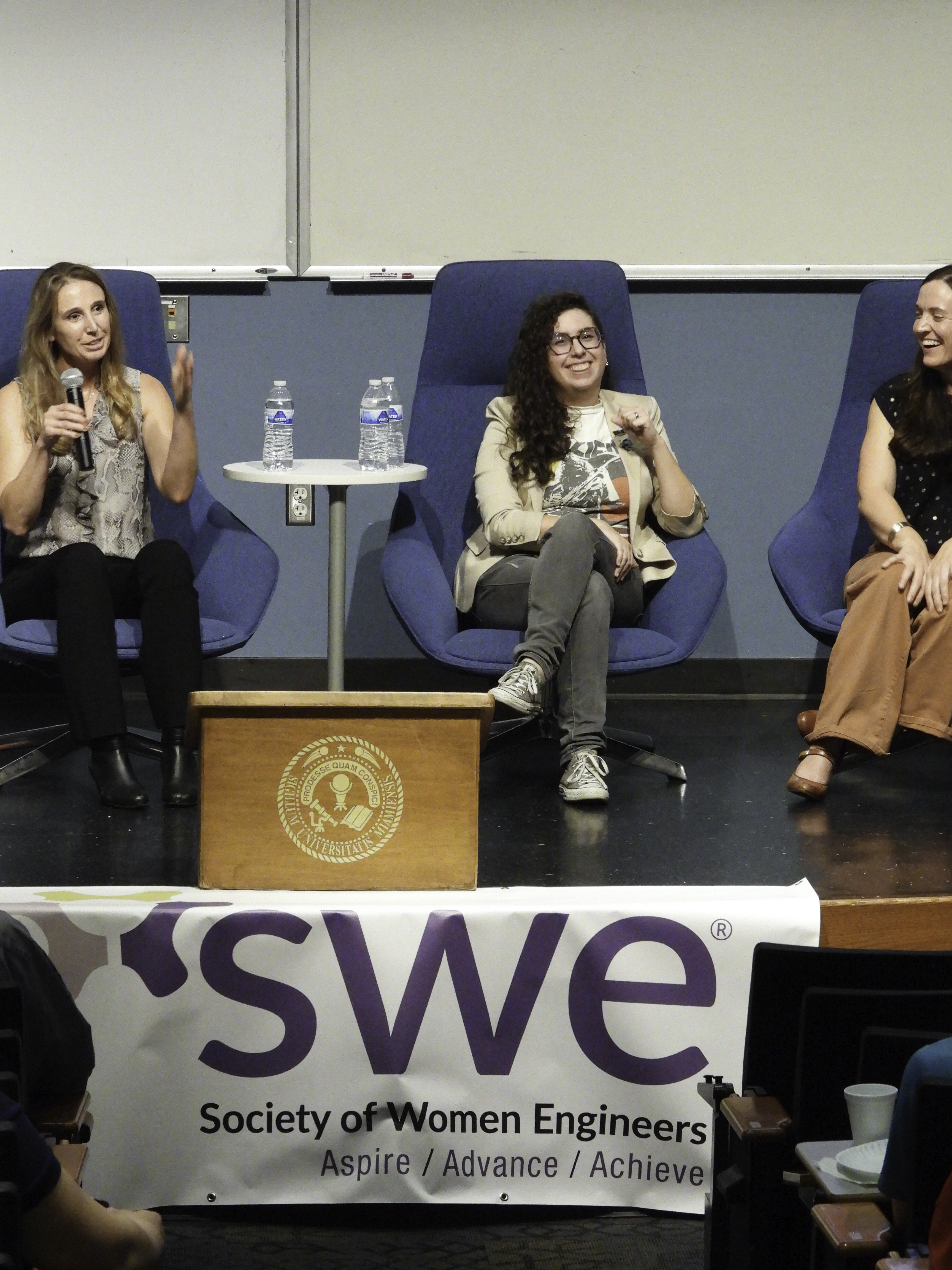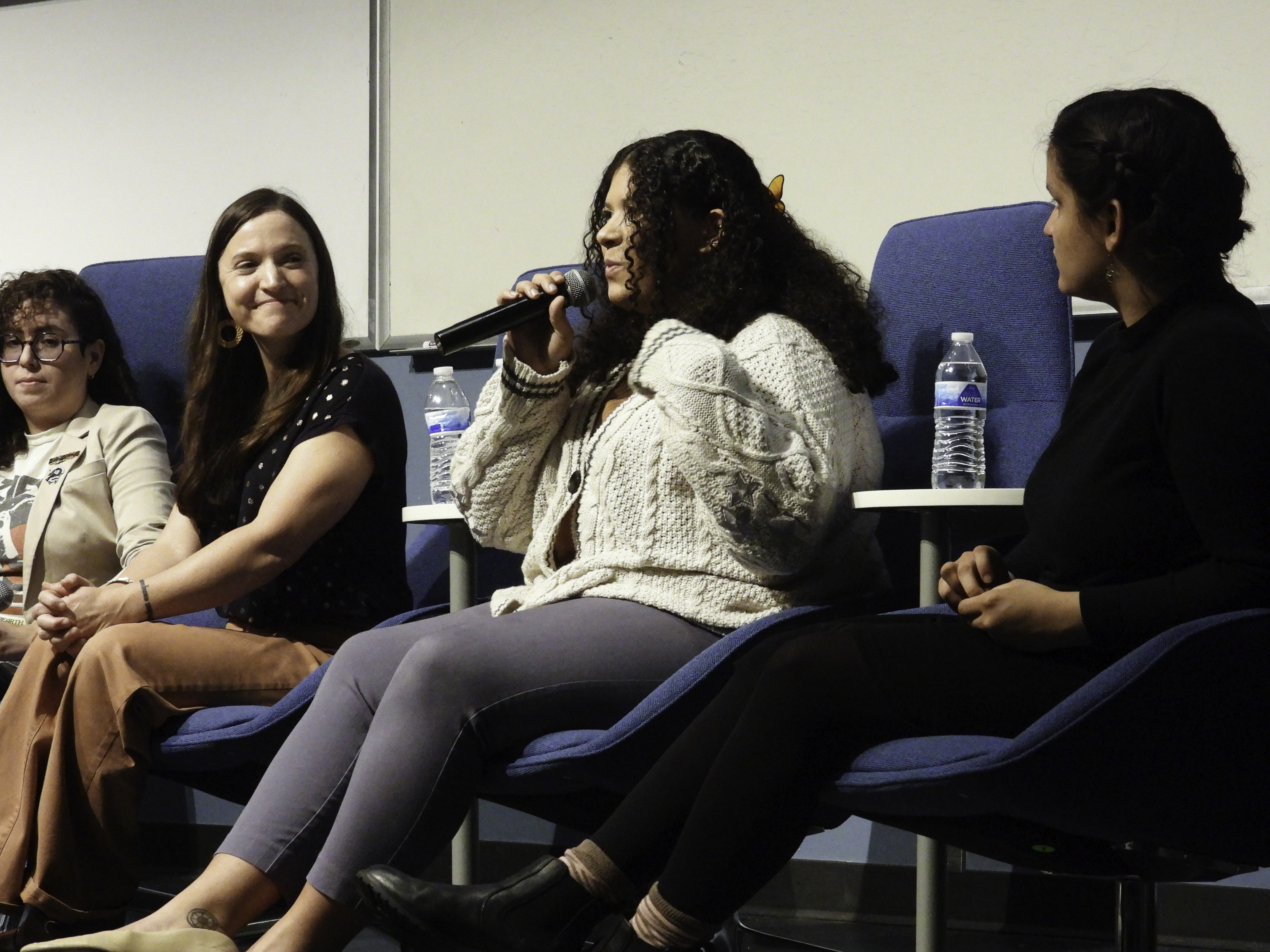Building a cyber career: Lessons in leadership, values, and resilience from women in the field
The panel, organized jointly by Miami University's Cyber Security Club and Miami's local chapter of Society of Women Engineers, offered in-person insights from female leaders.

Building a cyber career: Lessons in leadership, values, and resilience from women in the field
On November 6, the Society of Women Engineers and the Cyber Security Club at Miami University collaborated to host the “Women in Cyber” panel. Students had the opportunity to gain insights from an impressive lineup of panelists: Maggie Schwab, Vice President of Product Leadership at Fifth Third Bank; Roxanne Carr, Vice President of Application Security at Synchrony Bank; Tessa D’Souza, Cyber Engineer at Cryptic Vector; Cyan Perez, Security Engineer at P&G; Sarah Frisbie, Director of Network Engineering at Altafiber; and Michelle Baggerly, a Miami alumna and Cyber Engineer at Abercrombie & Fitch. The event's student leaders and moderators — both instrumental in managing planning for the event — were Frederick Levins '25 (Robotics Engineering) and Megan Walston '25 (Robotics Engineering and Spanish).
Each of the women on the panel shared valuable perspectives on the industry and offered aspiring professionals helpful advice for forging their own paths in the field.
The panel opened by highlighting the importance of soft skills in cybersecurity. While technical expertise is critical, skills like communication, teamwork, adaptability, and critical thinking are just as essential. Perez explained, “It’s easier to teach technical skills and catch up to speed there than it is to catch up on soft skills.”
Schwab then provided an example of how soft skills play out in professional settings. Drawing parallels to college group projects, she shared, “In the working world, group projects are still difficult, but you’re trying to use each other’s skill set. I’m good at communication, so I got assigned those parts of the work while the engineers got the more technical side. We played on each other’s strengths and weaknesses.” Not only was her ability to communicate something that set her apart from her teammates, but leveraging that to collaborate more effectively ensured the best project outcome.

The panelists also shared unique perspectives on gaining leadership in the industry. Carr emphasized the importance of authenticity, saying, “From a leadership perspective, first and foremost, however you decide to lead, be genuine. Don’t try to copy off of somebody else, or certainly don’t try to say you care about something and you really don’t—people see that your behavior and your words do not match, and that causes distrust.”
Building on this, Schwab noted the value of showing team members the broader impact of their work. “The things that you do, even if you’re deep in IT, if your leader can help you see the benefit that you’re bringing to your customers or the world, it makes a difference,” she said. Trust and a clear sense of purpose, they agreed, are critical for meaningful collaboration and team success.
With the audience having mostly been comprised of aspiring professionals in the cybersecurity field, the panelists were able to share some helpful advice on resumes and interviewing. Before taking on her current role as a Security Engineer at P&G, Perez joined the recruiting team at her company. She said, “the two biggest things we look at with resumes, were passion projects and leadership. Are you taking opportunities to challenge yourself to grow?”

Frisbie addressed the challenge of standing out in the hiring process. “The real elephant in the room is getting past HR, and that’s the real problem that I think you guys will have to face.” She was met by a few head nods by students in the crowd. How to get through them, she suggests, is by being savvy. Use ChatGPT to help you incorporate key buzzwords into your resume, be familiar with current events and terminology being used in the field, etc. But above all else? Be interested in what you’re doing. Baggerly echoed this, asked the following to the crowd: “What are you specifically interested in?” She encouraged students, saying that well-roundedness and passion is what will get them the green light in their careers. “If you have a resume that is a mile wide and an inch deep, I’m going to be a little more confused,” she said. A candidate’s resume, she shared, should not only be tailored to the job listing, but should reflect interests and passions beyond certifications. According to the panel, having a life outside of work (like passion projects that can be discussed) and selling one’s ability to learn is what will get a successful candidate through those initial interviews.
The panel was followed by a Q&A session that allowed attendees to dive deeper into topics such as imposter syndrome, career growth, and overcoming challenges. Michelle Baggerly offered humorous yet relatable advice on handling imposter syndrome, reminding students that even seasoned professionals have moments of doubt. Meanwhile, D’Souza discussed how stepping into challenging situations fosters personal and professional growth, urging students to embrace opportunities that push them out of their comfort zones.
The “Women in Cyber” panel left students with advice they can carry into their future careers. From the importance of soft skills to finding a workplace that aligns with your values, the panelists emphasized that success in cybersecurity isn’t just about technical expertise—it’s about building connections, staying authentic, and embracing opportunities for growth. Hearing from women who’ve navigated these challenges and come out on top made it clear that there’s no one-size-fits-all path, but there’s always room to grow and succeed.
Events like this highlight how the College of Engineering and Computing (CEC) is preparing students to succeed in competitive fields. By fostering conversations on leadership, teamwork, and innovation, CEC is helping to prepare the next generation to make meaningful contributions to their field. The next step? For students to apply these lessons and shape their own paths to success.